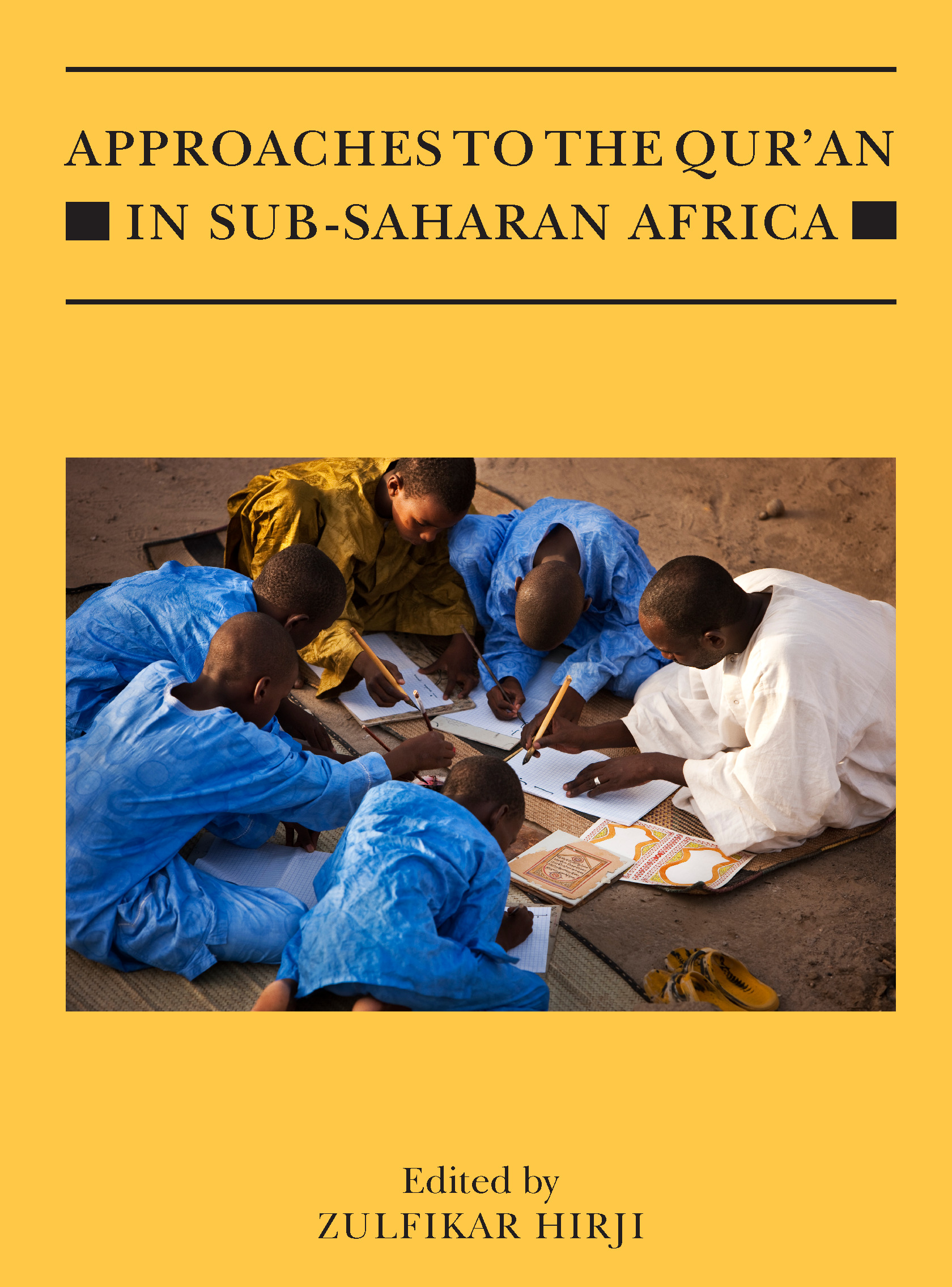This work aims to open up new discourses about Islam in sub-Saharan Africa through the examination of how Muslims in this geographical and socio-cultural context have engaged with the Qur’an(also Koran. Arabic term meaning, ‘recitation’ or ‘scripture’): Muslims believe that the Holy Qur’an contains divine revelations to the Prophet Muhammed received in Mecca and Medina over a period of… More. Covering a period from the twelfth/eighteenth century to the early twenty-first century, this multidisciplinary volume examines a variety of geographical locations in sub-Saharan Africa including Burkina Faso, Kenya, Mali, Niger, Nigeria, Senegal and Tanzania.
The book’s twelve case studies use different frameworks and methodological approaches from the academic disciplines of anthropology, art history, historiography and philology. They explore a variety of media and modalities that Muslims in sub-Saharan Africa, as elsewhere, use in their engagements with the Qur’an. This volume moves well beyond the materiality of the Qur’an as a physical book to explore the ways in which it is understood, felt and imagined, and to examine the contestations and debates that arise from these diverse engagements. The volume covers textual culture (manuscripts, commentaries and translations); aural and oral culture (recitations and invocations, music and poetry); the lived experience (magic squares and symbolic repertoire, medicinal and curative acts, healing and prayer, dreams and spirit worlds); material culture (textiles, ink, paper, and wooden boards); and education.
In seeking to understand the plurality of engagements that Muslims from diverse communities of interpretation and from different parts of sub-Saharan Africa have had with the Qur’an, this volume adds to the scholarship on the Qur’an as well as the scholarship on Islam and Muslims in Africa.
List of Illustrations
Notes on Contributors
Note on Transliteration, Conventions and Abbreviations
Acknowledgements
1. Introduction: Approaching the Qur’an in Sub-Saharan Africa
Zulfikar Hirji
2. Tafsīr Sources in Four Annotated Qur’anic Manuscripts from Ancient Borno
Dmitry Bondarev
3. Qur’anic Exegesis in Manding: The Example of a Bamana Oral Commentary on Sūrat al-Raḥman (Q. 55)
Tal Tamari
4. Polemics and Language in Swahili Translations of the Qur’an: Mubarak Ahmad (d. 2001), Abdullah Saleh al-Farsy (d. 1982) and Ali Muhsin al-Barwani (d. 2006)
Farouk Topan
5. ‘A Confirmation of What Went Before It’: Historicising a Swahili Qur’an Translation
Gerard C. van de Bruinhorst
6. A Pious Poetics of Place: Islam and the Interpellation of (Im)moral Subjects in Malian Popular Culture
Ryan Thomas Skinner
7. And God Will Protect Thee From Mankind (Q. 5:67): A Talismanic Shirt from West Africa
Ruba Kana’an
8. Prayer, Piety and Pleasure: Contested Models of Islamic Worship in Niger
Adeline Masquelier
9. By way of the Qur’an: Appeasing Spirits, Easing Emotions and Everyday Matters in Zanzibar
Kjersti Larson
10. The Woman Who Did Not Become Possessed: The Soul, Spirits and Ancestors in Tuareg Cultural Interpretations and Uses of Islam and the Qur’an
Susan J. Rasmussen
11. Women Who are Men: Shaykha Maryam Niasse and the Qur’an in Dakar
Joseph Hill
12. Fī Lawḥin Maḥfūz: Towards a Phenomenological Analysis of the Qur’anic Tablet
Andrea Brigaglia
13. The Siyu Qur’ans: Three Illuminated Qur’an Manuscripts from Coastal East Africa
Zulfikar Hirji
Bibliography
Index of Qur’anic Citations
General Index
‘a major contribution in the field of Islam in Africa and Qur’anic studies’
– O. Kane, The Journal of African History
Zulfikar Hirji (DPhil, Oxford) is Associate Professor at York University (Toronto) and has held fellowships at the University of Oxford (Oxford), the Pontifical Institute of Medieval Studies (Toronto) and the Institute of Ismaili Studies (London). His research and scholarly interests focus on the diverse social and cultural expressions of Muslims in historical and contemporary contexts, visual and sensory cultures, critical pedagogies and public education. He has conducted archival and field-based research around the Western Indian Ocean, the Middle East, East Africa, South Asia, Europe and North America. His publications include The IsmailisAdherents of a branch of Shi’i Islam that considers Ismail, the eldest son of the Shi’i Imam Jaʿfar al-Ṣādiq (d. 765), as his successor.: An Illustrated History (with Farhad Daftary) (London, 2008), Diversity and Pluralism in Muslim Contexts (London, 2010), Between Empires (London, 2012) and Islam: An Illustrated Journey (with Farhad Daftary) (London, 2018).

